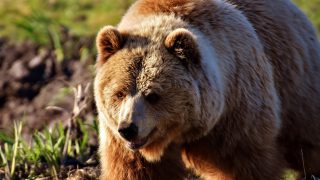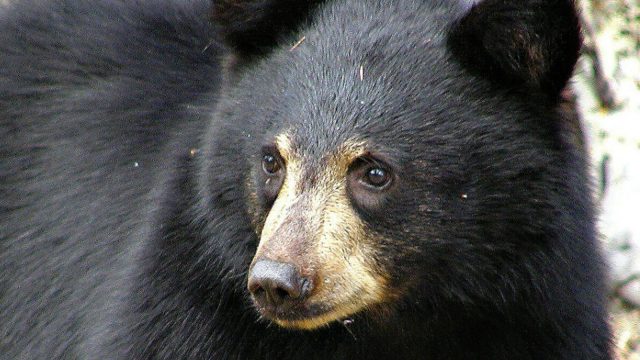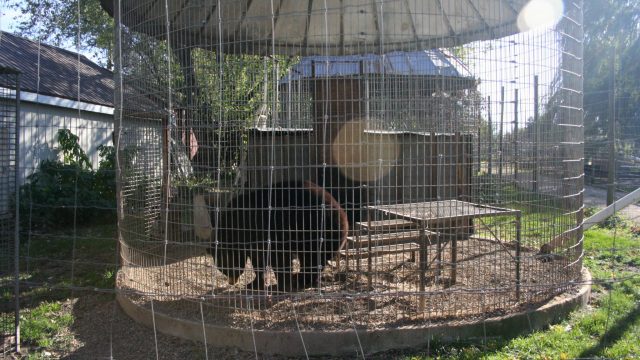
The Individual Within the Whole: Considering the Wellbeing of Individual Animals in Environmental Reviews
The recent death of Sudan, the last male northern white rhino, made headlines around the world. While his death was not unexpected – at 45-years-old, he was elderly – it was a tragedy for multiple reasons. The future of the northern white rhino is dim. But his death, and the fanfare around it, underscores how deeply many of us value individual animals in addition to species as a whole. We are saddened by the inevitable extinction of the northern white rhino, but we also grieve for Sudan. Sudan had a name – he was not just a number.
Considering a policy or law’s impact on the overall population of an animal species is required by multiple federal and state environmental laws. Will the construction of a border wall result in the extinction of the Mexican gray wolf? Will permitting the use of certain pesticides adversely affect wild orca population numbers?
These questions view the species as a set, often ignoring the impact on individual members. The Animal Legal Defense Fund cares not only about robust population numbers, but also about the individual orcas and Mexican gray wolf families that are adversely impacted by our country’s policies. But do environmental reviews have to consider the well-being of individual animals rather than considering only how an action impacts a species’ overall population numbers? The Animal Legal Defense Fund argues that they do.
Challenging the California Fish and Game Commission
In 2016, the Animal Legal Defense Fund filed a lawsuit on behalf of the Public Interest Coalition, a grassroots organization in California, after the California Fish and Game Commission voted unanimously to amend state regulations to allow hunters to use GPS dog collars while hunting mammals and “treeing switches” (radio telemetry that alerts a hunter when an animal might be treed). A hunted animal is “treed” when hunting dogs chase them up a tree, and wait at the bottom barking, holding the animal hostage with fear. Treeing is used for animals including cougars and black bears. The Animal Legal Defense Fund argued the Commission violated the California Environmental Quality Act (CEQA) by failing to consider the detrimental impact the decision will have on wildlife.
Back in Court
In response to the lawsuit, the Commission revisited the amendment. But at the end of 2017, it voted again to allow GPS collars and treeing switches. And once again, the Commission failed to conduct a proper environmental analysis. CEQA is a powerful law that mandates all public agencies evaluate projects and regulations that could significantly impact the environment. But the Commission did not consider the impact of the changes on the welfare of individual wild animals. The Animal Legal Defense Fund is suing the Commission once again, this time as a plaintiff in the lawsuit.
New Technology, New Threats to Wildlife
The new regulations make it easier to hunt and incentivize hunters to use dogs more often. Instead of staying in close physical proximity to hunting dogs, a hunter can simply track the dog on an electronic screen. A dog could roam for miles in search of a wild animal, out of the sight and control of the hunter. An increased number of unsupervised dogs roaming wildlife habitat equals more harm to wild animals. Unsupervised dogs are more likely to trap, injure, or even kill animals that may not be legally hunted like an endangered animal or adolescent animals. Further, the dogs themselves are vulnerable to attack by wild animals.
But even if a dog does not pursue an animal, the presence of dogs themselves disturbs a wild animal’s daily routine. State regulation defines harassment as an activity “that disrupts an animal’s normal behavior patterns.” The government already acknowledges that the presence of dogs disrupts or “harasses” wildlife – companion dogs are either prohibited or required to be on leashes across many public lands in the state.
This same reasoning behind restricting companion dogs should have been applied before the Commission allowed GPS collars and treeing switches. The hunting industry is taking advantage of these technological advancements to the detriment of wild animals. The Commission is legally obligated to consider the impact of new hunting technology on the wellbeing of individual animals. We may not know their names, but each animal and her wellbeing is important – and not merely as a representative of her species.
Focus Area
How We Work
Related
-
Lawsuit to Proceed Against USDA for Issuing Animal Welfare Act License to Yellowstone Bear World
The complaint argues the wildlife park has violated the Animal Welfare Act on numerous occasions, including separating cubs prematurely from their mothersSeptember 19, 2025 News -
Washington Governor Signs Animal Protection Bills into Law
The four laws will offer better protections for companion animals and keep wild animals from being exploited for entertainment in the stateMay 16, 2025 News -
Court Holds Cricket Hollow Zoo Owners in Contempt for Removing Animals Designated for Rescue in Violation of Court Order
Today the Delaware County district court granted a motion for contempt filed by the Animal Legal Defense Fund against Cricket Hollow Zoo and its owners, Pamela and Thomas Sellner, seeking the whereabouts of more than 100 animals who “disappeared” prior to a court-ordered rescue.October 5, 2021 Press Release



